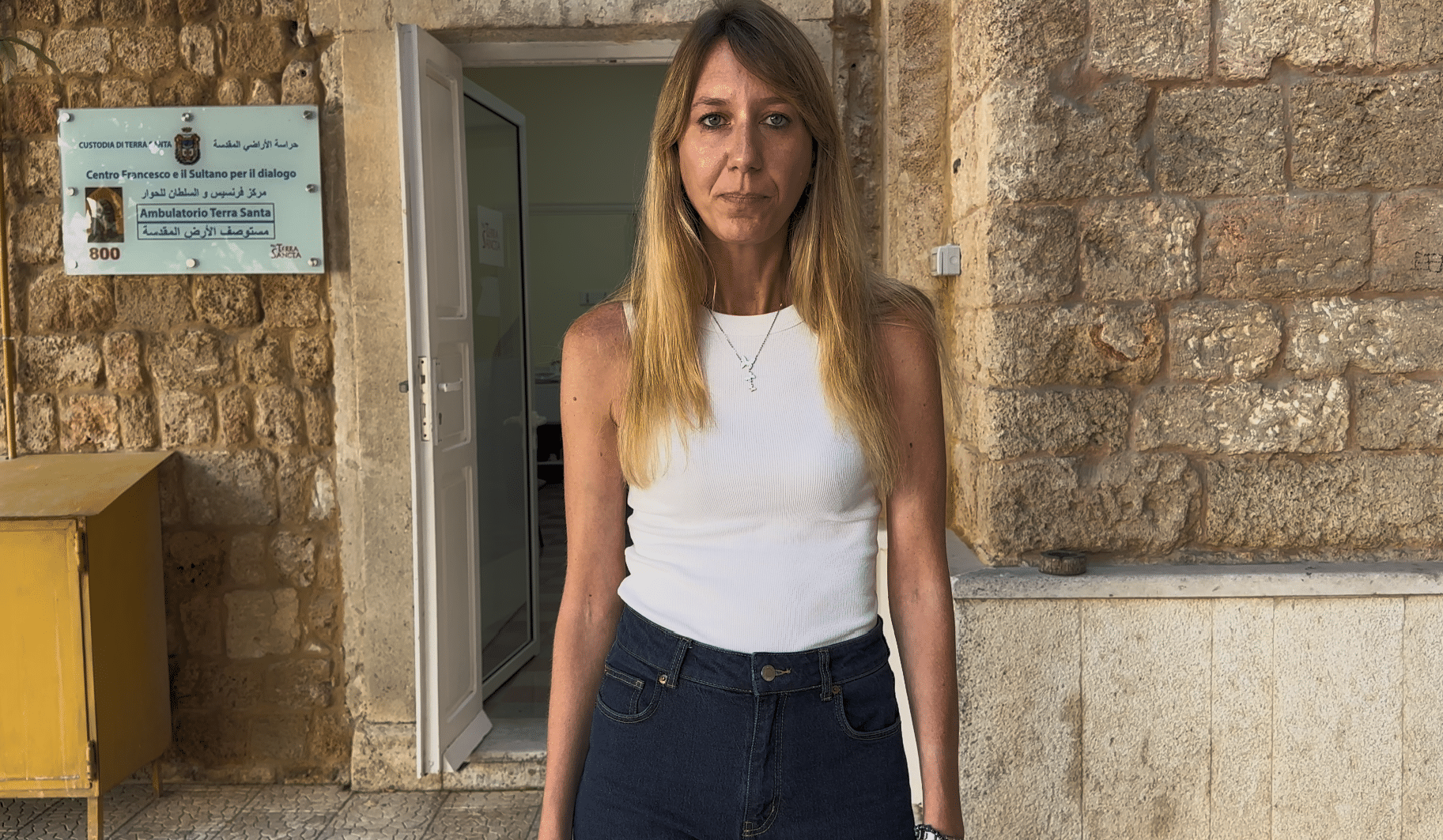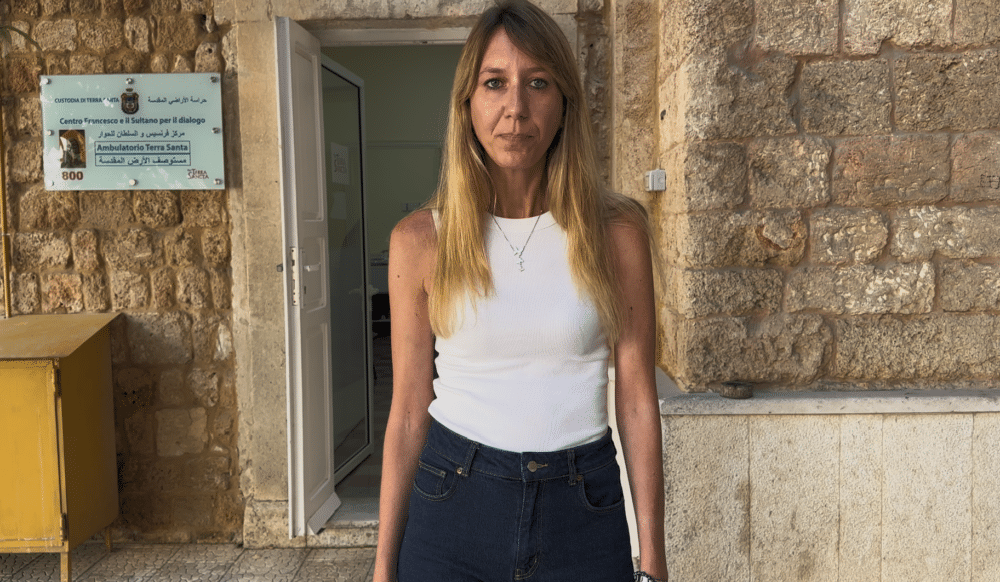
Updates from Lebanon
“In Italy you always feel safe; Here, however, there is always the idea that something can happen”
From Italy to Lebanon: daily precariousness
Silvia Zucconelli works in the Projects Office of Pro Terra Sancta, and four months ago she moved from Milan to Beirut to follow the launch of a new project funded by the Italian Agency for Development Cooperation (AICS). She had already been to Lebanon before moving, she already knew her colleagues, the people, the streets of Tripoli and the capital; But living there is different, living there allows you to sharpen your gaze and see what lies behind the apparent normality of Lebanese life.
“It’s very strange to live in this situation. Living here, it is much clearer how people, who go on with their lives every day, and maybe even seem happy, are actually not well at all. It’s something you don’t realize right away,” explains Silvia, “you understand it after a while. When you get here, everything looks very nice, but after a while you realize that there is always a bit of tension. For me it is a huge gap, compared to life in Italy, to wake up every day immersed in the uncertainty of the future; I am also referring to the immediate, imminent future. Will they bomb today? Tomorrow? Will this semblance of peace end in a few hours?”

News: the disarmament plan, the villages in the south taken by Israel
Lebanon continues to live in fear and precariousness. In recent days , the United States has increased pressure on the Lebanese government to force Hezbollah to hand over its weapons: a few days ago, in fact, they asked Beirut for a formal commitment to start the disarmament plan. It is an ultimatum rather than a negotiation: without this commitment, there will be no dialogue or pressure on Israel for a ceasefire. Hezbollah, however, demands that Israel take the first step, withdrawing troops from the south of the country and stopping the attacks.
Israel has already occupied 29 villages in southern Lebanon. These 29 villages are home to thousands of people who cannot return today, and do not know if and when they will ever be able to do so. For this reason, Hezbollah does not trust itself to disarm: if they returned their weapons without having concrete guarantees, they would no longer be able to stop Israel’s advance in the event of an attack.
In the meantime, the Lebanese army has been asked to present a disarmament plan within the next three weeks. If it is accepted, it must be implemented by December; otherwise, Lebanon is expected to be bombed again by neighboring states – Israel, but also Syria. In fact, there are rumors of a possible Syrian intervention, which is part of the agreements between Syria and Israel: this eventuality outlines a scenario of widespread violence, because today Lebanon does not have adequate means to resist a large-scale invasion.
Meanwhile, life continues. Projects
“The contradiction is that, despite everything, for now life continues as if nothing had happened,” explains Silvia. In fact, today Beirut is teeming with events, festivals, tourists arriving and expats returning to Lebanon for the holidays. This is why it is thought, as Fadi, project coordinator of the Pro Terra Sancta office in Beirut, adds, that “Until the end of September, probably, nothing will happen. No one has an interest in something happening now, at a time when the economy has started to turn around a bit: for now there are rumours, we imagine, but we will have to wait until September to really know what will happen”.
In the meantime, therefore, life continues, albeit in a motionless wait; and our projects also continue, in Tripoli, Beirut and in the north of the country. In Beirut, the opening of the new medical dispensary is expected, scheduled for September: “We have already started with the distribution of medicines, although the official opening will be in a few weeks. We are stocking up on medicines in view of the opening,” says Fadi, “and we are waiting to conclude the agreements with the hospital to be able to hire the doctors who will do check-ups and visits to patients on site.”
The AICS project is also getting underway: the aim of the project is the redevelopment of some areas of the north of the country in order to make new spaces accessible and restart tourism. “We have recently had the first official meeting with the donors, partners and municipalities involved,” says Silvia, “and the partners have begun the preliminary analysis and training of the staff.” One of the partners involved is the National Autistic Society, which has launched training courses and programs to enter the world of work; The mapping and socio-economic analysis of the municipalities involved have also begun, to better understand the needs and solutions to be proposed.
“We have also started the process to select the company that will take care of the redevelopment of a large public park. This large space, full of plants and olive trees, will be able to host markets, community events and activities even after the end of the project,” adds Silvia, “becoming a point of reference and aggregation for the local community.”
“Living here is alienating. In Italy you always feel safe. Here, however, there is always the idea that something can happen,” he concludes. And he adds: “On the other hand, precisely for this reason the impact that the projects we propose have here is clear.” Precisely because of uncertainty, instability, it is important that there are projects that aim to build something solid and lasting, that give substance to the hope of being able to plan a future.